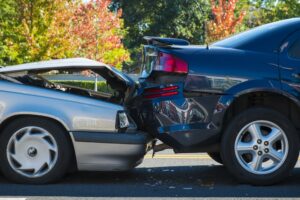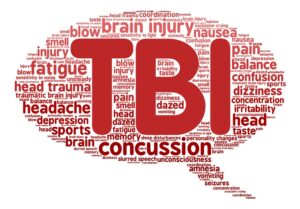Thousands of people are injured in passenger train accidents each year. The most serious accidents leave families devastated or cause permanent disabilities. Even a relatively minor train accident in Atlanta can cause severe injuries needing surgery and months of rehabilitative treatment.
Victims and their families may be faced with astronomical medical bills, funeral expenses, and the prospect of a life that can never be the same. If you or a family member has been injured in a passenger train accident, you are not alone. An Atlanta passenger train accident lawyer can help you.
At John Foy & Associates, we have been helping accident victims recover the money they are entitled to for more than 20 years. We dedicate our entire law practice to fighting for accident victims rights—we never side with insurance companies or the government.
Our experienced passenger train accident lawyers can give you a free consultation to discuss your case, explain your options, and help you decide what to do next. Call us at 404-400-4000 and get your free consultation today.
What Causes Passenger Train Accidents?
Passenger train operators like Amtrak and MARTA are legally required to take extra care to protect the safety of their passengers. When they don’t do this, accidents can occur. Accidents can also happen because of the carelessness of other drivers and pedestrians. Common causes of passenger train accidents include:
- Track defects
- Human error by the train operator or the driver of a vehicle
- Signal defects
- Speeding
- Defective train, signaling or crossing equipment
- Poorly marked or maintained crossings
- Failure to sound a warning
- A fatigued railroad crew or conductor
Get the strong arm
What Kinds of Injuries do People Suffer in Passenger Train Accidents?
Trains have a much greater potential to cause serious injuries than passenger cars do. A train can weigh hundreds of tons, travel at high speeds, and take up to a mile to slow down. By the time the engineer is aware of a hazard, it’s often too late to stop and avoid a collision.
When trains derail, they can tip over, catch on fire, and throw passengers inside the train car. Typical injuries we see in passenger train accidents include:
- Fatalities
- Spinal cord injuries causing paralysis
- Head injuries, including traumatic brain injuries
- Neck injuries
- Injuries caused by being crushed
- Slip and fall injuries such as back injuries, sprains and broken bones that occur on a platform or inside a train car
If you have been involved in a train accident, it is important to seek medical attention right away, even if you don’t think you have been seriously hurt. Some injuries become worse if left untreated, and the sooner you get medical attention, the more likely you are to have a successful recovery.
Is the Railroad Legally Responsible for My Accident?
In many cases, yes. Although train operators have a high duty to keep passengers safe and maintain their trains and lines, the laws related to train operator liability can be extremely complicated. There are many factors that can cause an accident, and not all of them are within the train operator’s control.
For example, if a car stalls on the tracks and the train can’t stop in time, there may be little that the engineer could have done to prevent the accident. Train operators may, however, be held liable if they could have prevented the accident through proper care and maintenance, or if the accident was caused by the conductor or engineer’s negligence.
Not surprisingly, train operators such as MARTA and Amtrak are not eager to accept responsibility for your injuries. They have teams of lawyers who will try to avoid liability. Even if they do accept responsibility, the insurance companies that handle their claims will try to pay you as little as possible.
At John Foy & Associates, we are used to these tactics and we know how to deal with them. Our experienced team of lawyers and investigators will gather the evidence we need to establish liability, and we will make sure you have a full medical evaluation so we can show the insurance companies exactly how much your injuries will cost.
What If I’m a Railroad Employee?
Railroad employees can also suffer serious injuries in a passenger train accident, but the procedure for recovering money is different. Railroad workers are subject to the Federal Employees’ Liability Act (FELA), which is designed to ensure that injured railroad workers receive proper compensation.
Under FELA, railroad workers must prove that their injuries were a direct result of their employer’s negligence. Railroads typically have teams of lawyers working for them, and that’s why it’s critical to have an experienced lawyer helping you in any claim you make under FELA.
What Kinds of Costs Can I Recover in a Passenger Train Accident Case?
In the City of Atlanta and Georgia, you can recover 100 percent of your costs and damages that are due to a train accident. And in many cases, you will be able to recover those costs without having to file a lawsuit or go to court. When we do take cases to the local courts, they typically award victims damages for:
- Medical costs such as doctors, hospitals and surgery
- Prescribed medications
- Physical or rehabilitative therapy
- Lost wages, if you missed time from work because of the accident
- Wrongful death, if a family member lost his or her life the accident
In addition, when injuries were especially severe, the courts may award even more damages, including pain and suffering and damages to compensate for a lifelong disability. This money cannot undo an injury or loss, but it can help you maintain financial stability as you rebuild your life.
Talk to an Atlanta Passenger Train Accident Lawyer for Free
Passenger train accidents often have tragic outcomes. If you or a loved one has been injured in a train accident, you do not have to pay the cost of your care alone. Our Atlanta passenger train accident lawyers are ready to help you get the money you need to remain financially stable while you cope with your injuries. Sit down with us for a free consultation and we’ll explain your rights and your options.
Call us at 404-400-4000 or fill out the form to your right and get your FREE consultation today.
(404) 400-4000 or complete a Free Case Evaluation form





